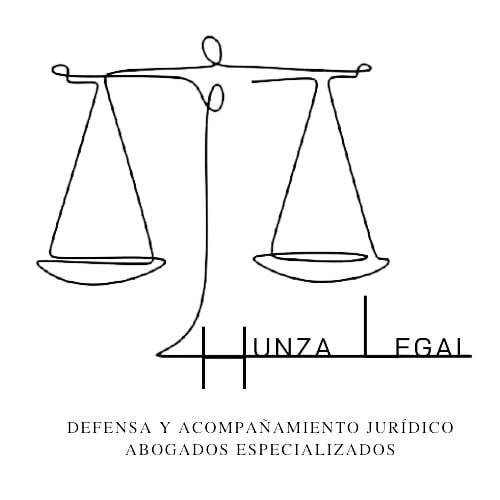Best DUI & DWI Lawyers in Tunja
Share your needs with us, get contacted by law firms.
Free. Takes 2 min.
List of the best lawyers in Tunja, Colombia
About DUI & DWI Law in Tunja, Colombia
Driving under the influence (DUI) and driving while intoxicated (DWI) are serious traffic violations in Tunja and throughout Colombia. These offenses relate to operating a motor vehicle while impaired by alcohol or other psychoactive substances. The laws aim to protect lives and reduce the number of accidents caused by impaired drivers. In Tunja, authorities regularly conduct roadside checks to ensure compliance with DUI and DWI regulations, and penalties can be severe, including fines, license suspension, and even jail time in certain cases.
Why You May Need a Lawyer
Facing a DUI or DWI charge in Tunja can be overwhelming due to the legal, financial, and personal consequences involved. Common situations where people may need legal help include being stopped at a checkpoint and testing above the legal alcohol limit, being involved in an accident where alcohol is suspected, refusing an alcohol test, or being accused without clear evidence. Lawyers specializing in DUI and DWI cases can help by analyzing the evidence, protecting your rights, negotiating reduced penalties, and representing you in court. Legal guidance is crucial to ensure proper procedure was followed during your detention and subsequent legal process.
Local Laws Overview
In Tunja, DUI and DWI laws are governed by Colombian national traffic laws, with strict local enforcement. Key aspects include:
- The legal blood alcohol concentration (BAC) limit is typically 0.4 grams of alcohol per liter of blood or 0.2 milligrams per liter in exhaled air for private drivers. Lower limits or zero-tolerance apply to commercial and professional drivers.
- Police can conduct random breathalyzer checks at any time and location within Tunja.
- Refusing to take a breathalyzer or blood test is considered an aggravating factor and can result in the same or higher penalties as failing the test.
- Penalties for DUI and DWI include significant fines, immediate suspension or cancellation of your driver's license, mandatory attendance at educational programs on road safety, and, for repeat offenders or aggravating circumstances, possible arrest and imprisonment.
- Aggravating factors, such as causing an accident, injuring another person, or transporting minors, result in more severe sanctions.
Frequently Asked Questions
What is the difference between DUI and DWI in Tunja, Colombia?
Although both terms are often used interchangeably in Colombia, both refer to operating a vehicle under the influence of alcohol or drugs. The law typically does not differentiate between DUI and DWI for sanction purposes.
What are the legal limits for alcohol consumption while driving?
For private drivers, the legal blood alcohol content limit is 0.4 grams per liter of blood. For commercial, public transport, or professional drivers, the permissible limit may be even lower or zero.
What are the immediate consequences if I test positive for alcohol at a checkpoint?
Police may seize your vehicle, suspend your driver's license on the spot, impose a fine, and require you to attend safety courses. Further legal proceedings may follow depending on the amount of alcohol detected.
What happens if I refuse to take a breathalyzer test?
Refusing a breathalyzer test is treated as a violation and can lead to the maximum penalties, including heavy fines and long-term license suspension or cancellation.
Can I go to jail for a DUI or DWI in Tunja?
Jail is possible in cases with aggravating circumstances, such as causing injuries, fatalities, or being a repeat offender. Most first-time offenses result in administrative penalties unless accompanied by more severe consequences.
How long can my license be suspended for a DUI?
License suspension periods depend on the level of intoxication and the presence of aggravating factors. Suspensions can range from 6 months to several years, or even permanent revocation for serious or repeat offenses.
Is hiring a lawyer mandatory for DUI cases?
While not mandatory, having a lawyer is highly advisable. A legal expert can provide guidance, identify procedural errors, negotiate on your behalf, and work to reduce penalties or dismiss charges.
Can a lawyer help reduce or eliminate my penalties?
Yes, a lawyer can review the case for legal or procedural errors, negotiate reductions in fines or suspension periods, and ensure you are treated fairly. Legal representation often improves your chances of a better outcome.
Will a DUI or DWI conviction appear on my criminal record?
Administrative violations related to DUI or DWI do not usually appear on your criminal record unless the offense involved criminal conduct, such as causing injury or death while driving intoxicated.
What should I do immediately after being arrested for DUI or DWI in Tunja?
Remain calm and respectful, do not resist police procedures, and avoid self-incrimination. Request a lawyer or contact one as soon as possible to ensure your rights are protected through the legal process.
Additional Resources
If you need more information or legal help with a DUI or DWI case in Tunja, the following resources can be useful:
- Instituto de Tránsito de Boyacá - The regional traffic authority responsible for enforcement and administrative processes in Tunja.
- Policía Nacional - Local traffic police handle checkpoints, enforcement, and relevant legal procedures.
- Defensoría del Pueblo - Offers legal guidance and human rights protections.
- Colegios de Abogados de Boyacá - Local bar associations with directories of qualified attorneys specializing in traffic and criminal law.
- Juzgados de Tunja - The city’s court system where hearings and appeals are processed.
Next Steps
If you are facing a DUI or DWI situation in Tunja, Colombia, consider the following actions:
- Contact a qualified local lawyer experienced in DUI and DWI matters as soon as possible.
- Collect and preserve any documents or evidence related to your case, including police reports and test results.
- Attend all mandatory legal or administrative appointments, including educational programs.
- Consult with traffic authorities or relevant organizations for up-to-date information regarding your status and next steps.
- Stay informed about your rights and the legal process to ensure you are treated fairly throughout your case.
Acting quickly and seeking knowledgeable legal representation can make a significant difference in the outcome of your case and help protect your rights and interests.
Lawzana helps you find the best lawyers and law firms in Tunja through a curated and pre-screened list of qualified legal professionals. Our platform offers rankings and detailed profiles of attorneys and law firms, allowing you to compare based on practice areas, including DUI & DWI, experience, and client feedback.
Each profile includes a description of the firm's areas of practice, client reviews, team members and partners, year of establishment, spoken languages, office locations, contact information, social media presence, and any published articles or resources. Most firms on our platform speak English and are experienced in both local and international legal matters.
Get a quote from top-rated law firms in Tunja, Colombia — quickly, securely, and without unnecessary hassle.
Disclaimer:
The information provided on this page is for general informational purposes only and does not constitute legal advice. While we strive to ensure the accuracy and relevance of the content, legal information may change over time, and interpretations of the law can vary. You should always consult with a qualified legal professional for advice specific to your situation.
We disclaim all liability for actions taken or not taken based on the content of this page. If you believe any information is incorrect or outdated, please contact us, and we will review and update it where appropriate.










